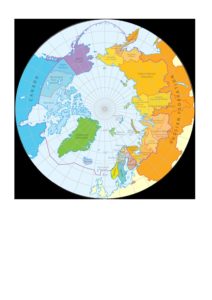
The opening of the Arctic to increased maritime activity for different purposes and by different nations is driving the need for an international forum to deal with potential security issues, two U.S. senators said on Wednesday. The senators also said that the U.S. needs to expand its infrastructure and other capabilities in the Arctic region for disaster response, search and rescue, to advance and protect sovereign interests, and meet the needs of local residents. “So, security is definitely a part…

 By
By 











